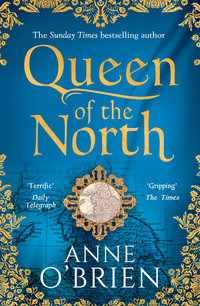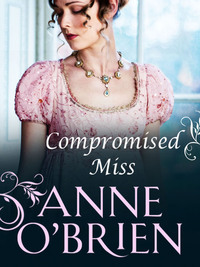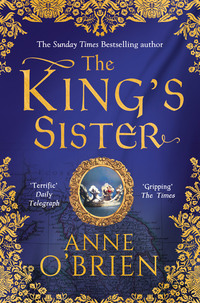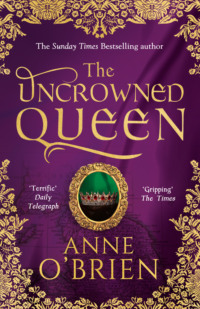
Полная версия
The King's Concubine
‘Which she’d find.’
‘A cranny in the eaves?’
‘She’d find that too.’
‘So?’ His smugness irritated me.
‘Give it to me.’
Which promptly dispersed my irritation. I laughed, disbelieving. ‘Do you take me for a fool?’
‘I take you for a sensible woman. Give it to me.’ He actually held out his hand, palm up. His fingers were blotched with ink.
‘I will not.’
He sighed as if his patience was strained. ‘Give it to me and I’ll use it to make you a rich woman.’
‘Why would you?’
‘Listen to me, Mistress Alice!’ I was right about the patience. His voice fell to a low hiss on the syllables of my name. ‘What keeps its value and lasts for ever?’
‘Gold.’
‘No. Gold can be stolen—and then you have nothing.’
‘Jewels, then.’
‘Same argument. Think about it.’
‘Then since you are so clever …’
‘Land!’ The clerk’s beady eyes gleamed. ‘Property. That’s the way to do it. It’s a generous purse he gave you. Give it to me and I will buy you property.’
For a moment I listened to him, seduced by the glitter in his gaze that was now holding mine. His nose almost twitched with the prospect. And then sense took hold. ‘But I cannot look after property! What would I do with it?’
‘You don’t have to look after it. There are ways and means. Give me your morning gift and I will show you how it’s done.’
It deserved some consideration. ‘What would you ask in return?’ I asked sharply.
‘Clever girl! I knew you had the makings of a business woman. I’ll let you know. But it will not be too great a price.’
I looked at him. What a cold fish he was. ‘Why are you doing this?’
‘I think you have possibilities.’
‘As a landowner?’ It all seemed nonsense to me.
‘Why not?’
I didn’t have a reply. I stood in silence, the coins in my hand seemingly growing heavier as I slowly breathed, in and out. I tossed the little bag, and caught it.
‘We don’t have all day.’ Greseley’s admonition broke into my thoughts. ‘That’s my offer. Take it or leave it. But if you think to keep it safe within these walls, it will be gone before the end of the week.’
‘And I should trust you.’
Trust had not figured highly in my life. This strange man with his love for figures and documents, seals and agreements, who had sought me out and made me this most tempting of offers—should I hand over to him all I owned in the world? It was a risk. A huge risk. The arguments, conflicting, destructive of each other, rattled back and forth in my brain.
Say no. Keep it for yourself. Hide it where no one can find it.
Take the risk! Become a landowner.
He’ll take it and keep it for himself.
Trust him.
I can’t!
Why not?
My exchange of views came to an abrupt halt when the clerk pushed himself upright and began to walk away. ‘Don’t say I didn’t warn you.’
And there was the final blast of the voice in my head. You can’t do this on your own, Alice, but Greseley can. This clever little louse has the knowledge. Learn from him. Use it to your own advantage.
Well, I would. ‘Stop!’ I called out.
He stopped, but he did not return; he simply stood there with his back to me.
‘I’ll do it,’ I told him.
He spun on his heel. ‘An excellent decision.’
‘How long will it take?’
‘A few days.’
I held up the pouch. Hesitated. Then dropped it into his outstretched palm. I was still wondering if I was an idiot. ‘If you rob me …’ I began.
‘Yes, Mistress Perrers?’ It caused me to laugh softly. It was the first time I had been addressed as such.
‘If you rob me, Master Greseley,’ I whispered, ‘I advise you to employ a taster before you eat or drink in this house.’
‘There’ll be no need, mistress.’ From his bland smugness, he thought I was making empty threats. I was not so sure. A good dose of wolfsbane masked by a cup of warmed ale would take out the strongest man. I would not care to be robbed.
The purse vanished into Greseley’s sleeve, and Greseley vanished along the corridor.
Would I live to regret this rash business dealing? All I knew was that it created a strange, turbulent euphoria that swept through me from my crown to my ill-shod feet.
Fool! Idiot girl! I berated myself with increasing fury over the following days. A sensible woman he called you. A business woman. And you let yourself be gulled! He knew how to wind you round his grubby fingers!
By God, he did! By the end of the week I knew I had seen the last of my morning gift. Greseley was elusive, exchanging not one word with me and avoiding my attempts to catch his eye. And when my impatience overcame my discretion: ‘What have you done with it?’ I growled in his ear as he slid onto a stool to break his fast.
‘Pass the jug of ale, if you please, mistress’ was all I got by way of reply. With one gulp he emptied his cup, crammed bread into his mouth, and left the room before I could pester him more.
‘Stir this pot,’ Mistress Damiata ordered, handing over a spoon.
Later that day he was sent into the city on business that kept him away overnight. How could I have been so ingenuous, to trust a man I barely knew? I had lost it. I had lost it all! I would never see one of those coins again, and my misery festered, even though I was kept hopping from morning to night. My mind began to linger lovingly on the effect of that large spoonful of wolfsbane on the scrawny frame of the clerk.
And then Greseley returned. He wouldn’t get away with ignoring me this time. Was he suffering from guilt? If he was, it did nothing to impair his appetite, as he chomped his way through slices of beef and half a flat bread, undisturbed by my scowling at him across the board.
‘We need to talk!’ I whispered, nudging him between his shoulder blades when I smacked a dish of herring in front of him.
His answering stare was cold and clear and without expression.
‘Careful, girl!’ snapped the Signora. ‘That dish! We’re not made of money!’
Greseley continued to eat with relish, but as I cleared the dishes, he produced a roll of a document from the breast of his tunic, like a coney from the sleeve of a second-rate jongleur, and tapped it against his fingertips before sliding it into an empty jug standing on the hearth, out of the Signora’s line of sight. It was not out of mine. My fingers itched to take it. I could sense it, like a burning brand below my heart.
At last. The kitchen was empty. Janyn closed the door on himself and his ledgers, the Signora climbed the stairs to her chamber, and I took the scroll from its hiding place and carried it to my room. Unrolling it carefully, I read the black script. No easy task. The legal words meant nothing to me, the phrases hard on my understanding, the script small and close written. But there was no doubting it. He had done what he had promised. There was my name: Alice Perrers. I was the owner of property in Gracechurch Street in the city of London.
I held it in my hands, staring at it, as if it might vanish if I looked away. Mine. It was mine. But what was it? And, more important, what did I do with it?
I ran Greseley to ground early next morning in the kitchen with his feet up on a trestle and a pot of ale beside him.
‘It’s all very well—but what am I expected to do with it?’
He looked at me as if I were stupid. ‘Nothing but enjoy the profits, mistress.’
‘I don’t understand.’
‘It doesn’t matter whether you do or not. It’s yours.’
He was watching me closely, as if to test my reaction. I did not see why he should, so I said what I wanted to say.
‘It does matter.’ And in that moment it struck home how much it meant to me. ‘It matters to me more than you’ll ever know.’ I glowered. ‘You won’t patronise me, Master Greseley. You will explain it all to me, and then I will understand. The property is mine and I want to know how it works.’ He laughed. He actually laughed, a harsh bark of a noise. ‘Now what?’
‘I knew I was right.’
‘About what?’
‘You, Mistress Perrers. Sit down, and don’t argue. I’m about to give you your first lesson.’
So I sat and Greseley explained to me the brilliance for a woman in my position of the legal device of ‘enfeoffment to use’. ‘The property is yours, and it remains yours,’ he explained. ‘But you allow others to administer it for you—for a fee, of course. You must choose wisely—a man with an interest in the property so that he will administer it well. Do you understand?’ I nodded. ‘You grant that man legal rights over the land, but you retain de facto control. See? You remain in ultimate ownership but need do nothing toward the day-to-day running of it.’
‘And can I make the agreement between us as long or as short as I wish?’
‘Yes.’
‘And I suppose I need a man of law to oversee this for me?’
‘It would be wise.’
‘What is this property that I now own, but do not own?’
‘Living accommodations—with shops below.’
‘Can I look at it?’
‘Of course.’
What else did I need to ask? ‘Was there any money leftover from the transaction?’
‘You don’t miss much, do you?’ He tipped out the contents of the purse at his belt and pushed across the board a small number of coins.
‘You said I needed a man of law.’ He regarded me without expression. ‘I suppose you would be my man of law.’
‘I certainly could. Next time, Mistress Perrers, we will work in partnership.’
‘Will there be a next time?’
‘Oh, I think so.’ I thought the slide of his glance had a depth of craftiness.
‘Is that good or bad—to work in partnership?’
Greseley’s pointed nose sniffed at my ignorance. He knew I could not work alone. But it seemed good to me. What strides I had made. I was a wife of sorts, even if I spent my nights checking Janyn’s tally sticks and columns of figures, and now I was a property owner. A little ripple of pleasure brushed along the skin of my forearms as the idea engaged my mind and my emotions. I liked it. And in my first deliberate business transaction, I pushed the coins back toward him.
‘You are now my man of law, Master Greseley.’
‘I am indeed, Mistress Perrers.’
The coins were swept into his purse with alacrity.
And where did I keep the evidence of my ownership? I kept it hidden on my person between shift and overgown, tied with a cord, except when I took it out and touched it, running my fingers over the wording that made it all official. There it was for my future. Security. Permanence. The words were like warm hands around mine on a winter’s day. Comforting.
I did not dislike Greseley as much as I once had.
Plague returned. The same dreaded pestilence that had struck without mercy just before my birth came creeping stealthily into London. It was the only gossip to be had in the streets, the market, the alehouses. It was different this time, so they said in whispers. The plague of children, they called it, striking cruelly at infants but not the hale and hearty who had reached adult years.
But the pestilence, stepping over our threshold, proved to be a chancy creature.
Of us all it was Janyn who was struck down. He drew aside the sleeve of his tunic to reveal the whirls of red spots as we gathered for dinner on an ordinary day. The meal was abandoned. Without a word Janyn walked up the stairs and shut himself in his chamber. Terror, rank and loathsome, set its claws into the Perrers household.
The boy disappeared overnight. Greseley found work in other parts of the city. Mistress Damiata fled with disgraceful speed to stay with her cousin whose house was uncontaminated. Who nursed Janyn? I did. I was his wife, even if he had never touched me unless his calloused fingers grazed mine when he pointed out a mistake in my copying. I owed him at least this final service.
From that first red and purple pattern on his arms there was no recovery.
I bathed his face and body, holding my breath at the stench of putrefying flesh. I racked my brains for anything Sister Margery, the Infirmarian at the Abbey, had said of her experiences of the pestilence. It was not much but I acted on it, flinging the windows of Janyn’s chamber wide to allow the escape of the corrupt air. For my own safety I washed my hands and face in vinegar, eating bread soaked in Janyn’s best wine—how Signora Damiata would have ranted at the waste—but for Janyn nothing halted the terrifying, galloping progress of the disease. The empty house echoed around me, the only sound the harsh breathing from my stricken husband and the approaching footsteps of death.
Was I afraid for myself?
I was, but if the horror of the vile swellings could pass from Janyn to me, the damage was already done. If the pestilence had the ability to hop across the desk where we sat to keep the ledgers, I was already doomed. I would stay and weather the storm.
A note appeared under the bedchamber door. I watched it slide slowly, from my position slumped on a stool from sheer exhaustion as Janyn laboured with increasingly distressed breaths. The fever had him in its thrall. Stepping softly to the door, listening to someone walking quietly away, I picked up the note and unfolded the single page, curiosity overcoming my weariness. Ha! No mystery after all. I recognised Greseley’s script with ease, and the note was written as a clerk might write a legal treatise. I sank back to the stool to read.
When you are a widow you have legal right to a dower—one third of the income of your husband’s estate. You will not get it.
You have by law forty days in which to vacate the house to allow the heir to take his inheritance. You will be evicted within the day.
As your legal man my advice: take what you can. It is your right. You will get nothing else that is due to you.
A stark warning. A chilling one. Leaving Janyn in a restless sleep, I began to search.
Nothing! Absolutely nothing!
Signora Damiata had done a thorough job of it while her brother lay dying. His room of business, the whole house was empty of all items of value. There were no bags of gold in Janyn’s coffers. There were no scrolls, the ledgers and tally sticks had gone. She had swept through the house, removing everything that might become an attraction for looters. Or for me. Everything from my own chamber had been removed. Even my new mantle—especially that—the only thing of value I owned.
I had nothing.
Above me in his bedchamber, Janyn shrieked in agony, and I returned to his side. I would do for him what I could, ruling my mind and my body to bathe and tend this man who was little more than a rotting corpse.
In the end it all happened so fast. I expect it was Janyn’s wine that saved me, but the decoction of green sage—from the scrubby patch in Signora Damiata’s yard—to dry and heal the ulcers and boils did nothing for him. Before the end of the second day he breathed no more. How could a man switch from rude health to rigid mortality within the time it took to pluck and boil a chicken? He never knew I was there with him.
Did I pray for him? Only if prayer was lancing the boils to free the foul-smelling pus. Now the house was truly silent around me, holding its breath, as I placed the linen gently over his face, catching a document that fell from the folds at the foot of the bed. And then I sat on the stool by Janyn’s body, not daring to move for fear that death noticed me too.
It was the clatter of a rook falling down the chimney that brought me back to my senses. Death had no need of my soul, so I opened the document that I still held. It was a deed of ownership in Janyn’s name, of a manor in West Peckham, somewhere in Kent. I read it over twice, a tiny seed of a plan beginning to unfurl in my mind. Now, here was a possibility. I did not know how to achieve what I envisaged, but of course I knew someone who would. How to find him?
I walked slowly down the stairs, halting halfway when I saw a figure below me.
‘Is he dead?’ Signora Damiata was waiting for me in the narrow hall.
‘Yes.’
She made the sign of the cross on her bosom, a cursory acknowledgement. Then flung back the outer door and gestured for me to leave. ‘I’ve arranged for his body to be collected. I’ll return when the pestilence has gone.’
‘What about me?’
‘I’m sure you’ll find some means of employment.’ She barely acknowledged me. ‘Plague does not quench men’s appetites.’
‘And my dower?’
‘What dower?’ She smirked.
‘You can’t do this,’ I announced. ‘I have legal rights. You can’t leave me homeless and without money.’
But she could. ‘Out!’
I was pushed through the doorway onto the street. With a flourish and rattle of the key, Signora Damiata locked the door and strode off, stepping through the waste and puddles.
It was a lesson to me in brutal cold-heartedness when dealing with matters of coin and survival. And there I was, sixteen years old to my reckoning, widowed after little more than a year of marriage, cast adrift, standing alone outside the house. It felt as if my feet were chained to the ground. Where would I go? Who would give me shelter? Reality was a bitter draught. London seethed around me but offered me no refuge.
‘Mistress Perrers.’
‘Master Greseley!’
For there he was—I hadn’t had to find him after all—emerging from a rank alley to slouch beside me. Never had I been so relieved to see anyone, but not without a shade of rancour. He may have lost a master too, but he would never be short of employment or a bed for the night in some merchant’s household. He eyed the locked door, and then me.
‘What did the old besom give you?’ he asked without preamble.
‘Nothing,’ I retorted. ‘The old besom has stripped the house.’ And then I smiled, waving the document in front of his eyes. ‘Except for this. She overlooked it. It’s a manor.’
Those eyes gleamed. ‘Is it, now? And what do you intend to do with it?’
‘I intend you to arrange that it becomes mine, Master Greseley. Enfeoffment for use, I think you called it.’ I could be a fast learner, and I had seen my chance. ‘Can you do that?’
He ran his finger down his nose. ‘Easy for those who know how. I can—if it suits me—have it made over to you as the widow of Master Perrers, and now femme sole.’
A woman alone. With property. A not unpleasing thought that made my smile widen.
‘And will it suit you, Master Greseley?’ I slid what I hoped was a persuasive glance at the clerk. ‘Will you do it for me?’
His face flushed under my gaze as he considered.
I softened my voice, adding a plea. ‘I cannot do this on my own, Master Greseley.’
He grinned, a quick slash of thin lips and discoloured teeth. ‘Why not? We have, I believe, the basis of a partnership here, Mistress Perrers. I’ll work for you, and you’ll put business my way—when you can. I’ll enfeoff the manor to the use of a local knight—and myself.’
So that was it. Master Greseley was not entirely altruistic, but willing with a little female enticement. How easily men could be seduced with a smile and outrageous flattery offered in sweet tones. He extended his hand. I looked at it: not over clean but with long, surprisingly elegant fingers that could work magic with figures far more ably than I. There on the doorstep of my erstwhile home, I handed over the document and we shook hands as I had seen Janyn do when confirming some transaction with a customer.
As I felt the grip of his rough clasp, I considered what I had just done. And how astonishing it was to me that an unpleasing face was no detriment to my achieving it. I had—as Greseley would say—a business partner.
‘You’ll not cheat me, will you?’ I frowned and made my voice stern.
‘Certainly not!’ His outrage was amusing. And then his brows twitched together suspiciously. ‘Where will you go?’
‘There’s only one place.’ I had already made my decision. There really was no other to be made. It would be a roof over my head and food in my belly, and far preferable to life on the streets or docks as a common whore. ‘Back to St Mary’s,’ I said. ‘They’ll take me in. I’ll stay there and wait for better times. Something will turn up.’
Greseley nodded. ‘Not a bad idea, all in all. But you’ll need this. Here.’ He rummaged in the purse at his belt and brought out two gold coins. ‘I’ll return these to you. They should persuade the Abbess to open the doors to you for a little time at least. Remember, though. You now owe me. I want it back.’
‘Where do I find you?’ I shouted, coarse as a fishwife, as he put distance between us, the proof of ownership of the manor at West Peckham stowed in his tunic.
‘Try the Tabard. At Southwark.’
That was as much as I got.
So I went back, where I had vowed I would never return, wheedling a ride in a wagon empty of all but the rank whiff of fish. I might own a manor and a house in London—I left both precious documents in Greseley’s care—but I was in debt to the tune of two gold nobles. Needs must. The coins did indeed open the doors of the Abbey to me, but they bought me no luxury. It was made clear to me that I must earn my keep and so I found myself joining the ranks of the conversa. A lay sister toiling for the benefit of the Brides of Christ. Perhaps it was the stink of salt cod clinging to my skirts that worked against me.
Why did I accept it?
Because the sanctuary it offered me was a temporary measure. I knew it, deep within me. I had supped in the outside world and found it to my taste. In those days of silent labour, a determination was born in me. I would never become a nun. I would never wed again at anyone’s dictates. At some point in the future, in Greseley’s clever hands, my land would bring me enough coin to allow me to live as a femme sole in my own house with my own bed and good clothing and servants at my beck and call.
I liked the image. It spurred me on as I scrubbed the nun’s habits and beat the stains from their wimples to restore them to pristine whiteness. I would make something of my life beyond the governance of others, neither nun nor wife nor whore. I would amount to something in my own right. But for now I was safe in the familiar surroundings of the Abbey, accepting the unchanging routine of work and prayer.
I’ll wait for better times, I had said to Greseley.
And I would wait with as much patience as I could muster. But not for too long, I prayed as my arms throbbed from wielding the heavy hoe amongst the Abbey cabbages.
I regretted the loss of my warm mantle.
Chapter Three
‘SHE’S here. She’s come.’ The whispers rustled like a brisk wind through a field of oats.
It was Vespers. We entered the Abbey church, the hush of habits and soft shoes a quiet sound against the paving, and we knelt, ranks of black veils and white wimples, I in a coarse fustian over-kirtle and hood with the rest of the conversa. Nothing out of the ordinary. The mind of every sister, choir or lay, centred on the need for God’s grace in a world of transgression. But not tonight. The sin of self-indulgence was rife, bright as the candle flames. Excitement was tangible, shivering in the air. For in the bishop’s own chair, placed to one side of the High Altar, sat the Queen of England.
From my lowly place in the choir stalls I could see nothing of Majesty, neither could I even hazard a guess as to why she would so honour us, the service proceeding as if that carved chair were unoccupied. The observance complete, the final blessing given, nuns and conversa stood as one, heads bowed, hands folded discreetly within sleeves. Mother Sybil genuflected before the altar and Majesty, still outside my vision, moved slowly through our midst towards the transept.












